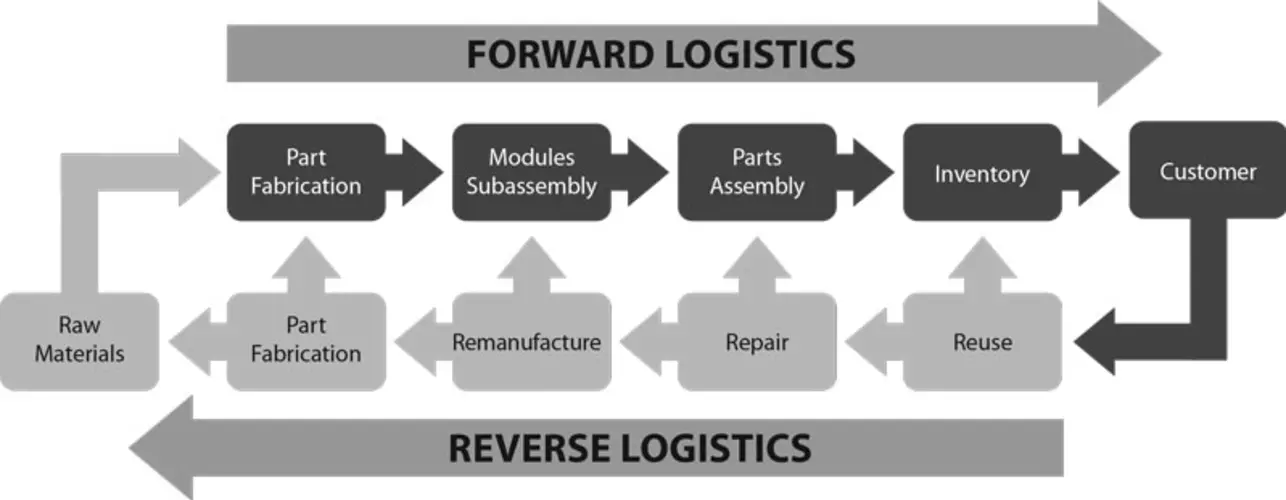The Importance of Efficient Returns Management and Reverse Logistics for E-Commerce Businesses
E-commerce has revolutionized the way people shop, allowing customers to purchase products from the comfort of their homes. However, with the rise of e-commerce, there has also been an increase in product returns. This has led to a growing need for efficient returns management and reverse logistics processes to handle the return of products. In this article, we will explore the importance of returns management and reverse logistics for e-commerce businesses and discuss strategies that can be implemented to improve these processes.
Efficient returns management and reverse logistics are critical for the success of e-commerce businesses. In the highly competitive e-commerce industry, providing hassle-free returns and exchanges is essential to maintain customer satisfaction and loyalty. This requires an effective reverse logistics system that enables the timely collection, inspection, and processing of returned items. E-commerce fulfilment solutions that incorporate advanced technology and automation can help streamline the returns management process, reducing the time and costs involved in handling returns. Efficient reverse logistics can also facilitate the recovery of value from returned products and reduce the environmental impact of disposal. By investing in efficient returns management and reverse logistics systems, e-commerce businesses can enhance their competitiveness and drive customer satisfaction, ultimately leading to increased profitability and growth.
Understanding Returns Management and Reverse Logistics
Returns management and reverse logistics refer to the processes that e-commerce businesses use to handle returned products. These processes include the identification, inspection, and disposition of returned products. Returns management is an essential aspect of e-commerce, as it directly impacts the profitability of a business.
Reverse logistics refers to the process of moving returned products back through the supply chain, from the customer to the manufacturer or supplier. It includes the management of the physical flow of products, as well as the information flow and financial flow associated with product returns.
Returns management and reverse logistics involve several stakeholders, including the customer, the e-commerce business, and the logistics service provider. Each stakeholder has a role to play in ensuring that returns management and reverse logistics processes are efficient and effective.
Why Returns Management and Reverse Logistics are Important for E-commerce
Returns management and reverse logistics are critical aspects of e-commerce that can have a significant impact on a business’s bottom line. Here are some of the reasons why they are essential:
- Cost Reduction: Efficient returns management and reverse logistics processes can help businesses reduce costs associated with product returns. By streamlining these processes, businesses can reduce the cost of inspecting, processing, and restocking returned products.
- Customer Experience: A smooth and efficient returns process can improve the overall customer experience. By providing a hassle-free returns process, businesses can increase customer satisfaction, which can lead to repeat business and positive reviews.
- Sustainability: Returns management and reverse logistics can help e-commerce businesses reduce their environmental impact. By properly disposing of returned products, businesses can prevent waste and ensure that products are disposed of in an environmentally friendly way.
- Inventory Management: Effective returns management and reverse logistics can help businesses manage their inventory better. By quickly processing returned products and returning them to the supply chain, businesses can reduce the amount of inventory they hold and avoid overstocking.
Strategies for Effective Returns Management and Reverse Logistics
- Easy Returns Process: The returns process should be straightforward and easy for customers to navigate. This includes providing clear return policies, simple instructions, and easy-to-use online portals.
- Efficient Inspection Process: The inspection process for returned products should be streamlined to reduce the time and cost associated with restocking returned products. By using automated processes, businesses can quickly identify and sort returned products for the appropriate disposition.
- Collaboration with Logistics Service Providers: Collaboration with logistics service providers can help businesses manage the physical and financial flows associated with returns management and reverse logistics. By partnering with logistics service providers that specialize in returns management and reverse logistics, businesses can leverage their expertise and experience to improve their processes.
- Data Analysis: Data analysis can help businesses identify trends and patterns in returns, allowing them to take proactive steps to reduce returns. By analyzing data such as return rates, product quality, and customer feedback, businesses can identify opportunities to improve their processes and reduce the likelihood of returns.
Conclusion
Returns management and reverse logistics are essential aspects of e-commerce that can have a significant impact on a business’s bottom line. By implementing strategies that focus on improving these processes, businesses can reduce costs, improve customer satisfaction, and increase sustainability. An easy returns process, efficient inspection process, collaboration with logistics service providers, and data analysis are some of the key strategies that businesses can implement to improve their returns management and reverse logistics processes.





